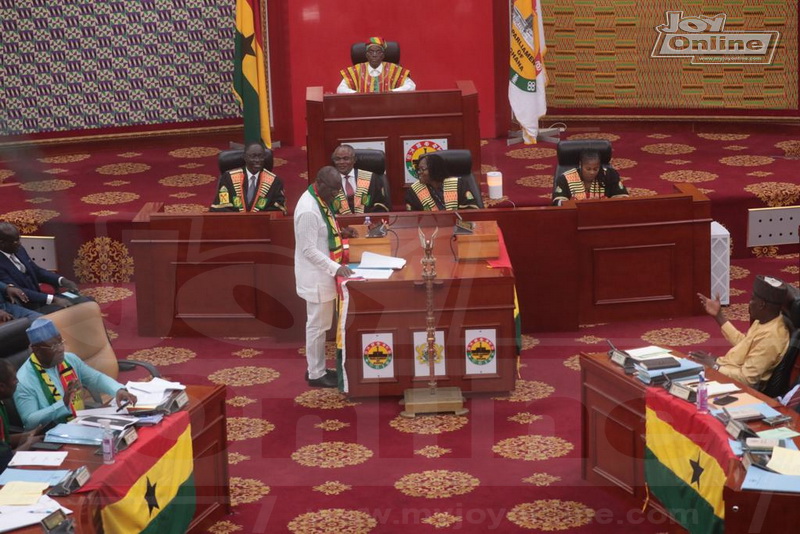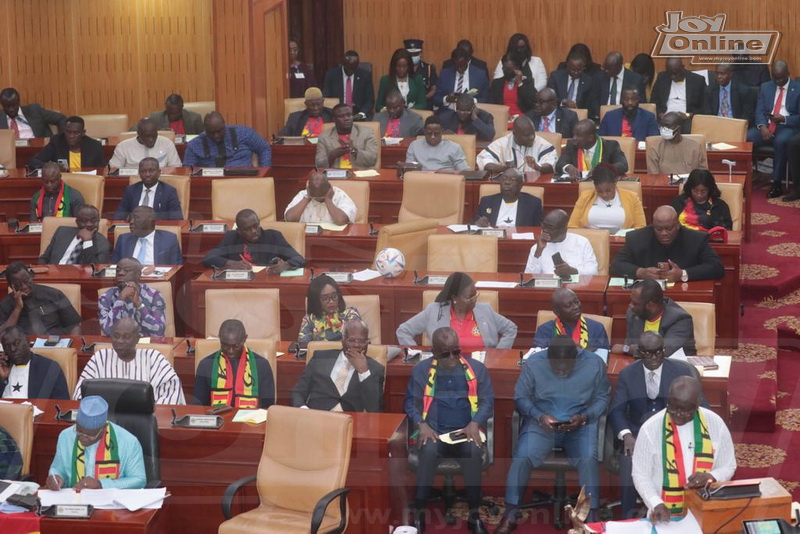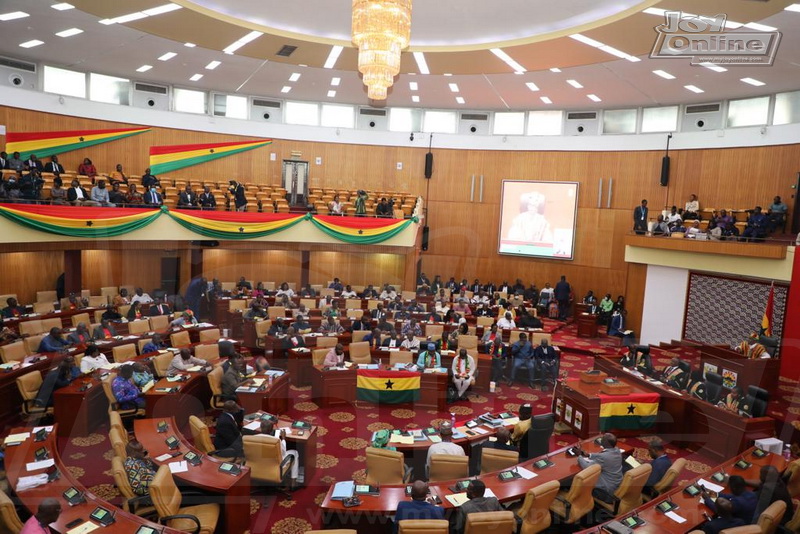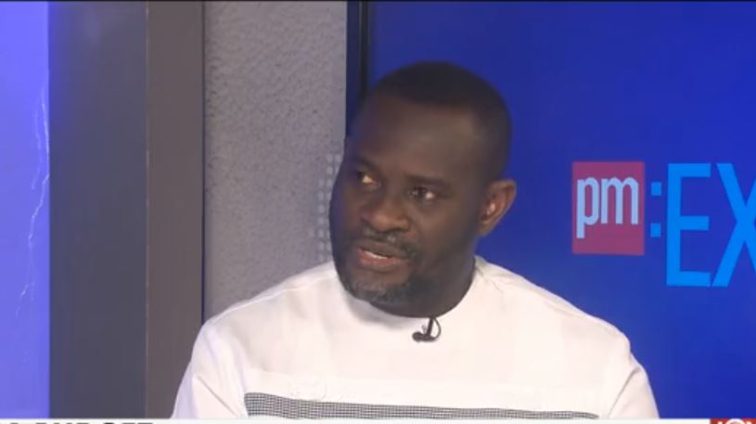A Deputy Finance Minister, Dr John Ampontuah Kumah, says the 2023 Budget is anchored on key programmes to achieve debt sustainability through the International Monetary Fund (IMF) and a Debt Exchange Programme.
The programme, launched by the government, hopes to bring the debt of the country to a sustainable level, the Deputy Minister explained.
Reacting to the 2023 Budget Statement and Economic Policy presentation by Mr. Ken Ofori-Atta to Parliament on Thursday in Accra, Dr Kumah said: "The government is going on an aggressive revenue mobilisation path thereby raising VAT by 2.5 per cent and bringing the E-levy from 1.5 per cent to 1 per cent to increase revenue mobilisation."

Dr Kumah added that providing a safety net and social protection programmes for the poor are also a major concern to the government and that, the current beneficiaries of the Livelihood Empowerment Against Poverty (LEAP) Programme at 320,000 would be increased by 450,000 with their GH¢45 monthly payments to be increased to support the very poor in the country.
The Government announced plans for expanding the LEAP programme to cover more extremely poor and vulnerable people in the country, whilst taking steps to review other social protection programmes for efficiency.

Mr. Ofori-Atta, who announced this on the floor of Parliament, said the expansion in the grant of the social intervention programme from GH¢41.75 per household to GH¢95.19 bi-monthly was to cater to the needs of beneficiaries while improving their well-being.
"Government is committed to expanding coverage to all 2,500,000 extremely poor individuals as estimated by the Ghana Living Standards Survey (GLSS 7) by 2024.
"While improving efficiency through digitalization and assessment, the government will, in 2023, increase the value of the LEAP grant from the average of GH¢41.75 per household to GH¢95.19 bi-monthly," he said.

Mr. Ofori-Atta maintained that the expansion of the programme would have a long-lasting impact on the development of the human resource base of the country giving the assurance, that the government remains committed to raising the living standards of the vulnerable and poor in society and would do all within its power to realise this objective.
The LEAP programme provides cash transfers to very poor people, particularly in households with orphans or vulnerable children, the elderly, and people with extreme disabilities.
Established in 2008, the programme aimed to support the poorest families in Ghana to better meet their basic needs, prioritise health, enroll children in school and improve their attendance, increase savings, and work and invest more to pull themselves out of poverty.
Currently, LEAP supports 1.5 million extremely poor Ghanaians from 344,023 households across the country while providing support for the elderly aged 65 and above, severely disabled, who are unable to work, or caregivers of orphans and vulnerable children.
Latest Stories
-
WAFU B U-17 Girls’ Cup: Black Maidens beat Nigeria on penalties to win inaugral tournament
9 minutes -
Real Madrid beat Sevilla to keep pressure on leaders Atletico
1 hour -
Liverpool put six past Spurs to go four points clear
1 hour -
Manchester United lose 3-0 at home to Bournemouth yet again
1 hour -
CHAN 2024Q: ‘It’s still an open game’ – Didi on Ghana’s draw with Nigeria
1 hour -
CHAN 2024Q: Ghana’s Black Galaxies held by Nigeria in first-leg tie
2 hours -
Dr Nduom hopeful defunct GN bank will be restored under Mahama administration
3 hours -
Bridget Bonnie celebrates NDC Victory, champions hope for women and youth
3 hours -
Shamima Muslim urges youth to lead Ghana’s renewal at 18Plus4NDC anniversary
4 hours -
Akufo-Addo condemns post-election violence, blames NDC
4 hours -
DAMC, Free Food Company, to distribute 10,000 packs of food to street kids
5 hours -
Kwame Boafo Akuffo: Court ruling on re-collation flawed
6 hours -
Samuel Yaw Adusei: The strategist behind NDC’s electoral security in Ashanti region
6 hours -
I’m confident posterity will judge my performance well – Akufo-Addo
6 hours -
Syria’s minorities seek security as country charts new future
7 hours

